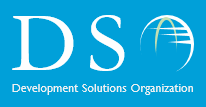“Lemon, I would like to teach you something. I would like to be Michelle Pfeiffer to your angry black kid who learns that poetry is just another way to rap.” – Jack Donaghy [1]
These were the promising words spoken by Alec Baldwin’s character to Tina Fey’s Liz Lemon as a formal offering to be her mentor. Although she initially declined, the dynamics of their quirky relationship made for excellent TV, and yet, also highlighted the importance of fostering a budding mentor-mentee relationship in the workplace.
The Harvard Business Review states “professional services firms live and die by their intellectual capital.” [2] Jack couldn’t agree more. I would argue that we at DSO feel the same way – each one of us engagement leaders and student consultants bring valuable skills and traits to the organization and the projects we work on. Losing such talent and motivation would be a travesty.
However, professional firms continue to face the inevitable problem of attrition, and according to DeLong, Gabarro, and Lees, this has only been accentuated by the hypercompetitive world we live in. Partners are too focused on satisfying clients that they no longer bother much with talent development. With such an uncaring attitude presented to associates at work, they opt for grander opportunities elsewhere – draining the company of knowledge. At the same time, the authors claim that partners do not share the desire to expend energy to teach associates who are bound to leave the firm anyways. The partner’s grievances are supported by the most recent data from the Bureau of Labor Statistics (BLS) showing that the average worker lasts at a firm for 4.4 years. That number drops by about 50% when considering Millennials exclusively [3]. Greater desire for faster corporate ladder ascension and a competitive market is causing mentoring to fall by the way side.
At DSO, I would like to believe that not only are we making an impact on communities and clients, but also on our student consultants who have chosen to volunteer with us. Thus, our mentorship model dictates that each student deserves a mentor.
Well, what form should such a model take? I concur with HBR’s assessment that young professionals dislike bureaucracy, so instead of a formal mentoring system, a better approach is to provide hands-on individualized feedback. De Long, Gabbaro, and Lees lay out four central principles that are of crucial essence to a strong mentorship model. I would say DSO more or less abides by these modified notions:
Principle 1 – Mentoring is important
We aim to choose mentors for mentees that align with their stated interests and preferences.
Principle 2 – Each member matters
With all the diversity each individual brings, our solutions will only be just as diverse. Therefore nurturing each student’s interests/skills at DSO only makes our product as a whole, better.
Principle 3 – Choice assignments
We want everyone to be enthusiastic and excited about what it is they want to work on. After all, we are choosing to do this out of passion
Principle 4 – Mentoring is a two-way street
Give and take can be equally rewarding and makes for a significant contribution to the intellectual and professional development of both parties.
Now DSO does uniquely stand out from a traditional professional service as it is a self-selective group of young professionals and students volunteering their time and therefore it does not bear the same burdens that plague most firms of their workers. However, I would hope that mentoring does not become passé and the corporate world continues to promote the vital role a mentor can play on the psyche of a fresh employee.
Contributed by Ajay Ghadiyaram
[1] “Quotes.” IMDb. IMDb.com, n.d. Web. 08 Dec. 2014.
[2] DeLong, Thomas J., John J. Gabarro, and Robert J. Lees. Of Making Talent. Why Mentoring Matters in a Hypercompetitive World (n.d.): n. pag. Web
[3] Meister, Jeanne. “Job Hopping Is the ‘New Normal’ for Millennials: Three Ways to Prevent a Human Resource Nightmare. Forbes. Forbes Magazine, n.d. Web. 05 Dec. 2014.
